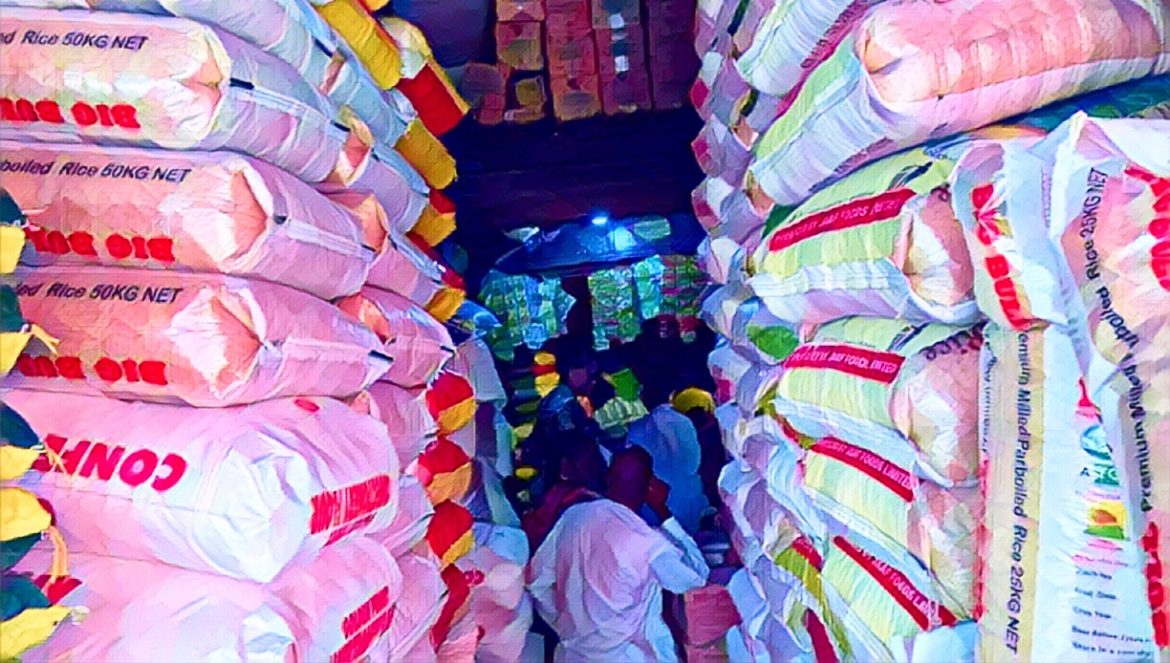KEY POINTS
- Rice prices in Nigeria have surged 123%, making the staple increasingly unaffordable for many Nigerians.
- The price hike significantly diminishes the purchasing power of Nigeria’s new minimum wage.
- Analysts cite inflation and supply issues as key drivers of rising food costs.
The citizens of Nigeria are bearing the brunt of the rising rice prices, a 50kg bag now costs an average of ₦55,000, up by 123% in the last one year. This increase in the price of the staple food is far beyond the purchasing power of the recently adjusted minimum wage in Nigeria; therefore, it has exerted more pressure on households in Nigeria.
This high price increase is as a result of inflation and supply shortages which have extended to the prices of foods with rice being a staple food across the country.
Increasing rice prices and pressure on households
The general increase in the prices of rice has affected the Nigerian populace greatly especially the middle and lower classes of the society. Currently, rice is being sold for ₦55, 000 for 50kg bag, which is very expensive to many Nigerians and especially the low income earners who rely on rice.
The new minimum wage which was expected to enhance living standards of the populace has been negated by the high cost of rice and other essential commodities among the new minimum wage earners.
A survey conducted by BusinessDay last month revealed that a large number of people are either reducing their consumption of rice or opting for cheaper substitutes in order to save costs.
The report reveals that apart from the increase in the price of rice, other inflation on food products has also been a factor to the increasing cost of living, which poses a challenge to the government in its attempt to address food price and wages deflation.
Outbreak of inflation and associated supply chain
Analysts have blamed the price hike to factors such as inflation, devaluation of currency and disruptions in local manufacturing.
The continuous depreciation of the naira has increased the cost of importation of rice through making the price and the quantity of rice in the market expensive. This has been due to high input costs and inadequate infrastructure that have characterized rice production by local producers.
Also, the consequences of global supply chains disruptions have prolonged these challenges, thereby increasing the cost of food. Since a considerable part of rice in Nigeria is imported, the exchange rate affects the retail prices directly, especially because the costs of importing rice increase when the exchange rate is unfavorable.
Claims for government interference
The increase in the prices of rice has led to a clamor for government action in controlling food inflation and enhancing food security. Some of the economists have called on the government to support local farmers in order to ensure that rice production is not affected by importation.
Subsidizing and increasing cheap financing for local farmers in addition to investments to enhance access to processed rice and improve their farmland, as well as transitioning to better technology and practice could also reduce production costs and the price of rice.
Moreover, based on the work of economic analyze, inflation should also be controlled in order to safeguard the purchasing power. Possibilities of stabilizing the naira as well as boosting measures which would prevent the tendency of inflation could curb further escalation of prices for foodstuffs.
Since Nigeria’s minimum wage cannot even support the basic needs of workers, controlling food price inflation has become an important policy goal for the government.


